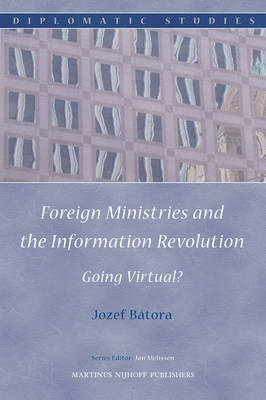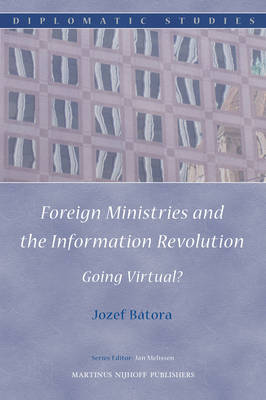
- Afhalen na 1 uur in een winkel met voorraad
- Gratis thuislevering in België vanaf € 30
- Ruim aanbod met 7 miljoen producten
- Afhalen na 1 uur in een winkel met voorraad
- Gratis thuislevering in België vanaf € 30
- Ruim aanbod met 7 miljoen producten
Zoeken
Foreign Ministries and the Information Revolution: Going Virtual?
Jozef Bátora
€ 270,95
+ 541 punten
Omschrijving
Anchored in new institutionalist approaches in political science, the book provides a comparative in-depth analysis of information technology effects in the foreign ministries of Canada, Norway and Slovakia.
Specificaties
Betrokkenen
- Auteur(s):
- Uitgeverij:
Inhoud
- Aantal bladzijden:
- 250
- Taal:
- Engels
- Reeks:
- Reeksnummer:
- nr. 2
Eigenschappen
- Productcode (EAN):
- 9789004169005
- Verschijningsdatum:
- 25/07/2008
- Uitvoering:
- Paperback
- Formaat:
- Trade paperback (VS)
- Afmetingen:
- 160 mm x 244 mm
- Gewicht:
- 566 g

Alleen bij Standaard Boekhandel
+ 541 punten op je klantenkaart van Standaard Boekhandel
Beoordelingen
We publiceren alleen reviews die voldoen aan de voorwaarden voor reviews. Bekijk onze voorwaarden voor reviews.








